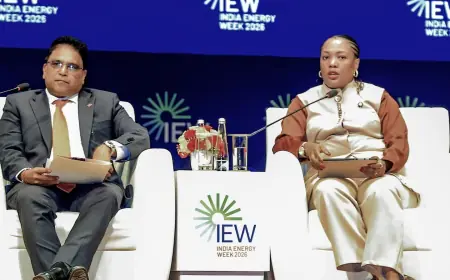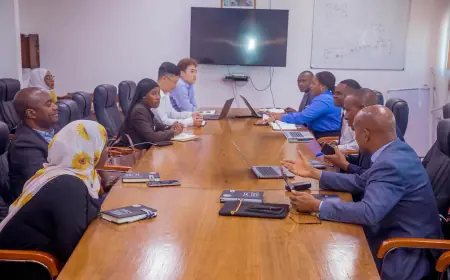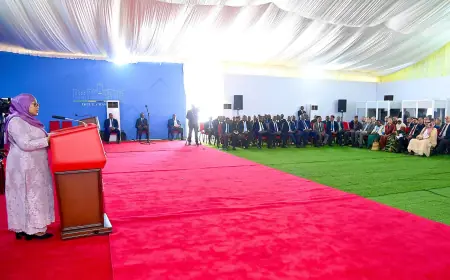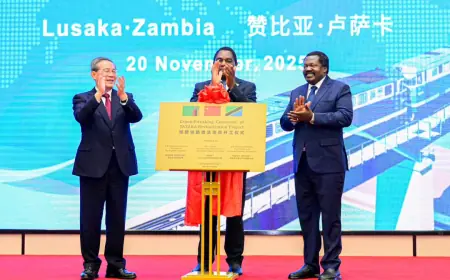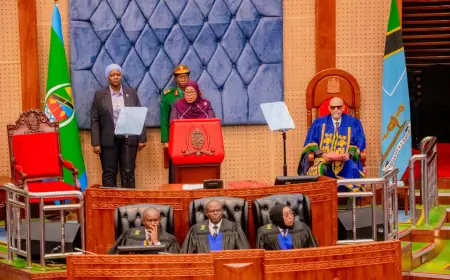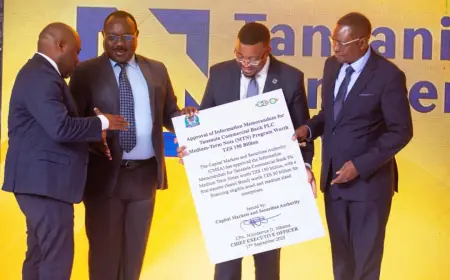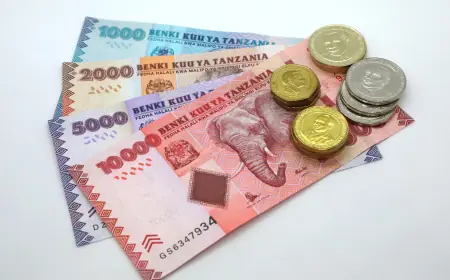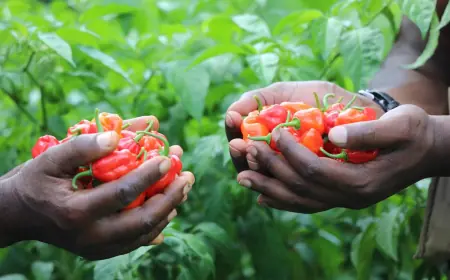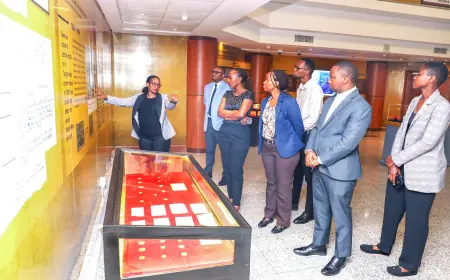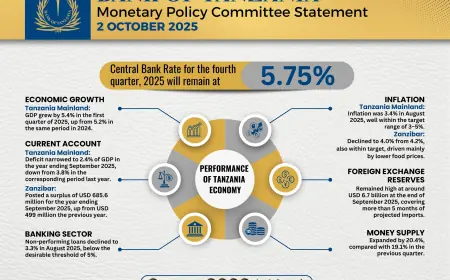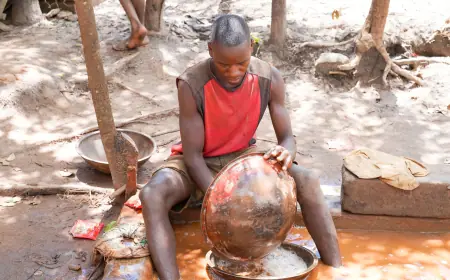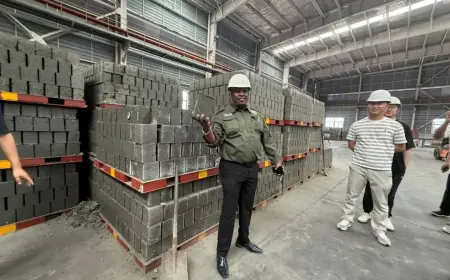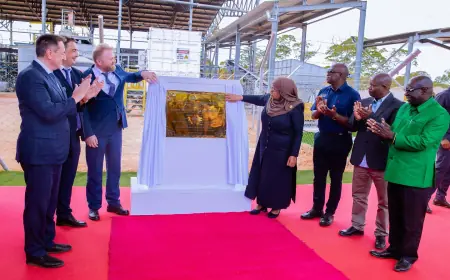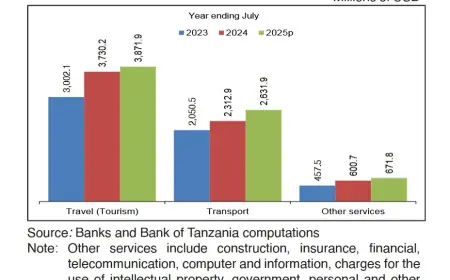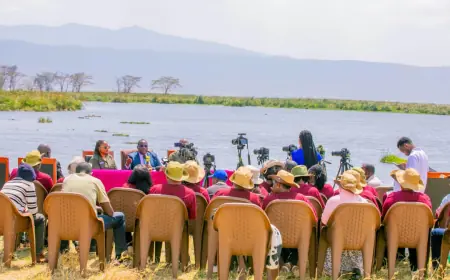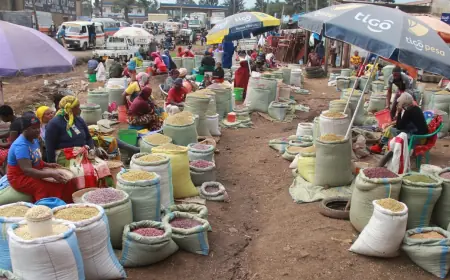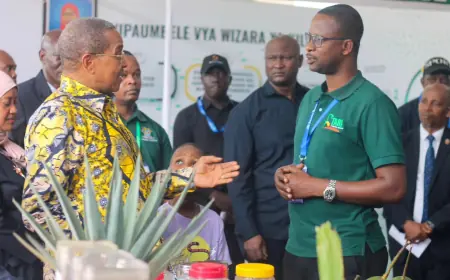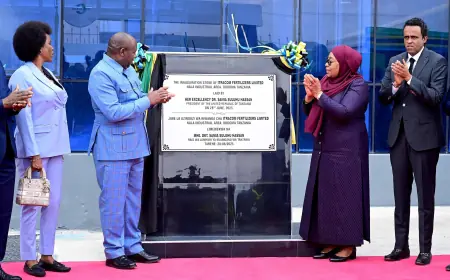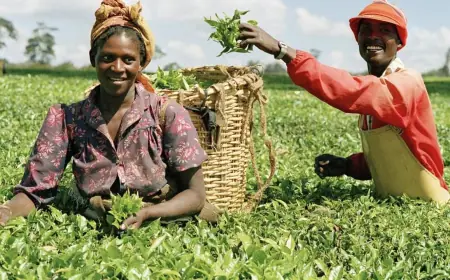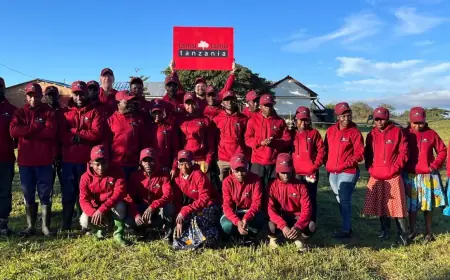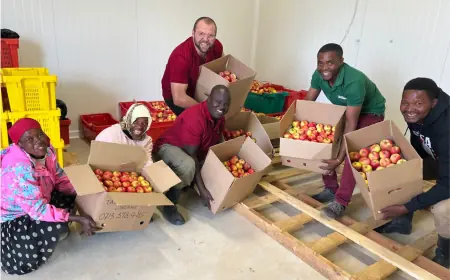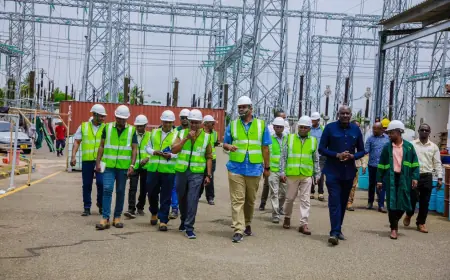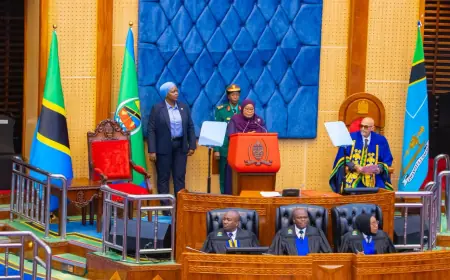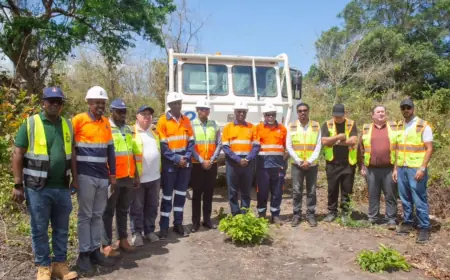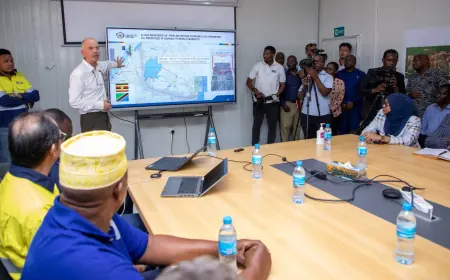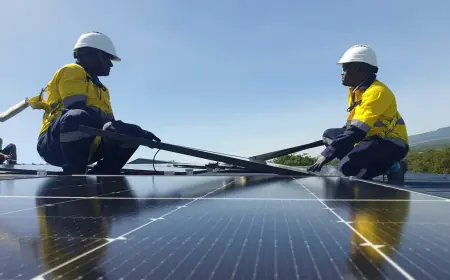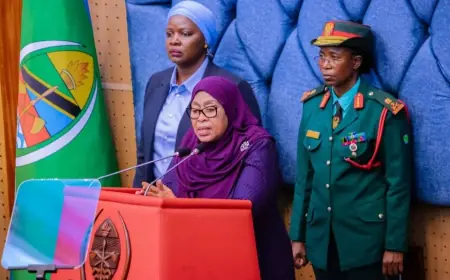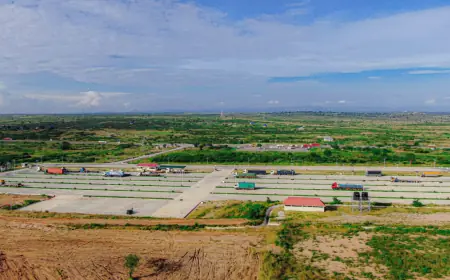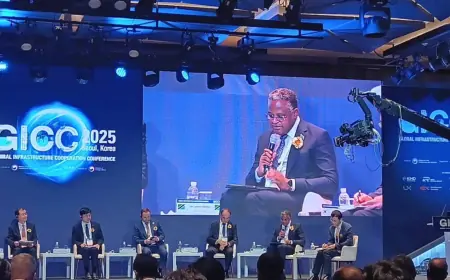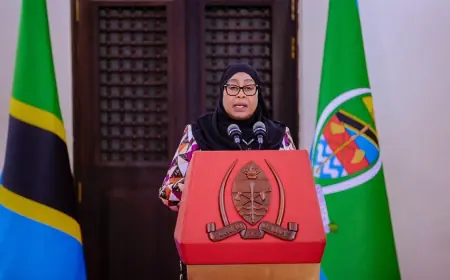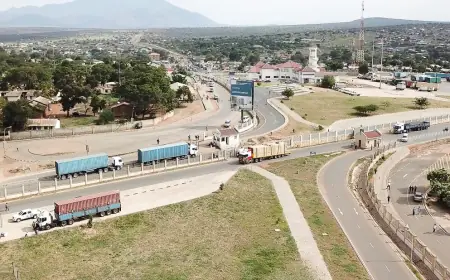Strategy charts path to adaption of clean cooking methods
For decades, traditional cooking methods in Tanzania have predominantly involved the use of biomass fuels—wood, charcoal, and animal dung

A silent revolution is underway in Tanzania, one that seeks to transform the way its people cook, with implications that stretch from the remotest villages to the bustling urban centres.
The focus of this change is clean cooking, a vital endeavour that stands at the nexus of energy efficiency, public health, environmental protection, and economic development.
This sweeping movement is embodied in Tanzania's ambitious National Clean Cooking Strategy, which targets making clean cooking accessible to millions by 2033.
Tanzania’s National Clean Cooking Strategy is not just a policy document; it is a roadmap to a healthier, greener, and more prosperous future. But what exactly does Tanzania aim to achieve through its clean cooking targets, and how does the nation plan to get there?
The Stakes: Why clean cooking matters
For decades, traditional cooking methods in Tanzania have predominantly involved the use of biomass fuels—wood, charcoal, and animal dung.
While these methods are deeply ingrained in the country’s cultural and social fabric, they come with severe consequences. In rural areas, women and children spend hours of their precious time collecting firewood, a chore that takes time away from education and productive work.
The use of solid fuels in open fires or inefficient stoves produces high levels of indoor air pollution, a silent killer responsible for approximately 33,000 premature deaths annually in Tanzania, with women and children bearing the brunt of the impact.
Moreover, the reliance on biomass fuels contributes significantly to deforestation, exacerbating environmental degradation and climate change.
A Blueprint for change
The National Clean Cooking Strategy aligns with the nation’s broader development goals, including the Tanzania Development Vision 2025 and the Sustainable Development Goals (SDGs).
Central to this strategy is the goal of ensuring that at least 80 percent of Tanzanian households have access to modern, clean cooking solutions by 2033.
This target is a significant leap from the current situation, where only 15 percent of households use clean cooking technologies.
The strategy’s key objectives
To achieve the targets, the strategy outlines several key objectives that are expanding access to clean cooking technologies, promoting the use of liquefied petroleum gas (LPG), improved biomass stoves, and electric cooking solutions.
The government plans to increase the availability of clean cooking stoves and fuels, making them affordable and accessible to all, particularly in rural areas where traditional cooking methods are most prevalent.
The roadmap towards Tanzania’s clean cooking future points towards the following pointers:
Public awareness and behavioural change Understanding that technology alone is not enough, the strategy emphasises the need for widespread public education on the benefits of clean cooking.
The government aims to drive a cultural shift through extensive awareness campaigns that highlight the health, environmental, and economic advantages of modern cooking methods.
Strengthening the Regulatory Framework
Ensuring the quality and safety of clean cooking products is paramount. The strategy includes the development of robust regulations and standards for clean cooking technologies, along with enforcement mechanisms to ensure compliance.
Promoting Local Production and Innovation
To make clean cooking solutions more affordable and sustainable, the strategy encourages local production of stoves and fuels. This not only reduces costs but also stimulates job creation and economic growth within the country.
Fostering Partnerships and Collaboration Recognising that the transition to clean cooking requires a multi-faceted approach, the strategy calls for collaboration between the government, private sector, civil society, and international partners.
This includes leveraging financial and technical support from global initiatives such as the Clean Cooking Alliance and the Global LPG Partnership.
The strategy highlights a multi-faceted approach to achieving its clean cooking targets. These are the key components of this approach.
Transitioning to modern fuels and technologies
Tanzania aims to reduce reliance on biomass by promoting cleaner alternatives such as liquefied petroleum gas (LPG), ethanol, and electricity.
This will involve creating an enabling environment for the private sector to invest in clean cooking solutions, subsidising the cost of modern stoves and fuels, and raising public awareness about the benefits of clean cooking.
Supporting innovation and local manufacturing
To meet its clean cooking goals, Tanzania is placing a strong emphasis on fostering innovation and building local capacity. The government is encouraging the development and local production of affordable, high-quality clean cookstoves and fuels.
By nurturing a local clean cooking industry, Tanzania hopes to create jobs and stimulate economic growth while reducing the need for imports.
Strengthening policy and institutional frameworks
The National Clean Cooking Strategy calls for strengthening existing policies and institutional frameworks to support the adoption of clean cooking solutions.
This includes developing regulatory standards for clean cooking technologies and fuels, ensuring that they are affordable, accessible, and safe.
Additionally, the government is focused on coordinating efforts across multiple sectors—energy, health, environment, and education—to drive forward the clean cooking agenda.
Financing mechanisms and partnerships
Achieving Tanzania’s clean cooking targets will require significant investment.
The strategy emphasises the need for diverse financing mechanisms, including public and private investment, donor funding, and innovative financing models such as pay-as-you-go (PAYG) schemes for clean cooking technologies.
Partnerships between the government, private sector, NGOs, and international organisations are critical to mobilising the resources needed to scale up clean cooking initiatives.
Moving the needle: Successes so far
Tanzania has already made notable progress towards its clean cooking goals, with several pilot projects and initiatives gaining traction across the country.
One such initiative is the promotion of LPG as a viable, clean cooking alternative.
LPG adoption has grown steadily, particularly in urban areas, driven by government policies that have lowered taxes on LPG equipment and fuel.
Cities and major towns, including Dar es Salaam, Arusha, and Dodoma, have seen significant uptake in LPG usage, with the fuel now being a primary cooking source for many urban households.
Additionally, the government has partnered with international organisations to implement pilot projects for ethanol stoves in rural communities, where deforestation rates are high and access to cleaner fuels remains a challenge.
Another area of progress is the promotion of improved biomass stoves. These stoves, designed to burn wood and charcoal more efficiently, have gained popularity in rural areas where modern fuels are less accessible.
The government, in collaboration with local NGOs, has worked to disseminate these stoves and educate the public about their benefits. The stoves produce less smoke and use less fuel, reducing indoor air pollution and alleviating pressure on local forests.
Obstacles to overcome
Despite these achievements, significant challenges remain on Tanzania's path to universal clean cooking.
One of the most significant obstacles is affordability. The cost of clean cooking technologies and fuels remains out of reach for many low-income households, particularly in rural areas.
While government subsidies and financing schemes are helping to address this issue, scaling up these initiatives to reach the entire population will require sustained investment and effort.
Another challenge is behaviour change. For generations, Tanzanian families have relied on traditional cooking methods. Transitioning to modern alternatives requires not only access to new technologies but also a shift in cultural practices and perceptions.
Some households are hesitant to adopt new methods due to a lack of understanding of the health and environmental benefits, as well as concerns about fuel availability and costs.
Finally, there is the issue of infrastructure. Expanding access to modern fuels such as LPG and electricity will require substantial improvements in energy infrastructure, particularly in rural and remote areas.
The government is investing in expanding the national grid and increasing LPG distribution networks, but reaching the most isolated communities will take time.
The environmental imperative
Tanzania’s clean cooking initiative is also about combating climate change. The widespread use of biomass fuels contributes to deforestation, which in turn accelerates soil erosion, desertification, and the loss of biodiversity.
These environmental impacts are compounded by the fact that traditional cooking methods produce high levels of carbon emissions, contributing to global warming.
By promoting clean cooking solutions, Tanzania aims to reduce pressure on its forests and lower its carbon footprint.
The transition to modern fuels such as LPG and ethanol, which produce fewer emissions than biomass, is a key component of the country’s broader climate change mitigation strategy. Improved cookstoves also play a role in this effort by reducing fuel consumption and emissions.
The road ahead: Bold steps towards a cleaner future
Tanzania’s clean cooking ambitions are bold, but they are also necessary. As the country strives to meet its 2033 targets, the government and its partners will need to maintain a relentless focus on overcoming the barriers to clean cooking adoption.
This will require continued investment in infrastructure, innovation, and education, as well as strong policy support and collaboration across sectors.
For Tanzania, achieving universal access to clean cooking is more than just a matter of convenience—it is a matter of public health, environmental sustainability, and economic development.
The benefits of clean cooking ripple across society, improving the quality of life for millions of people while protecting the environment for future generations.
As the nation moves forward with its clean cooking strategy, it will serve as a model for other countries facing similar challenges.
Tanzania’s commitment to clean cooking reflects a broader global movement towards sustainable energy solutions that prioritise the well-being of people and the planet.
And with strong leadership, innovative solutions, and international cooperation, Tanzania is well on its way to achieving a cleaner, healthier, and more prosperous future for all its citizens.
What's Your Reaction?
 Like
0
Like
0
 Dislike
0
Dislike
0
 Love
0
Love
0
 Funny
0
Funny
0
 Angry
0
Angry
0
 Sad
0
Sad
0
 Wow
0
Wow
0
